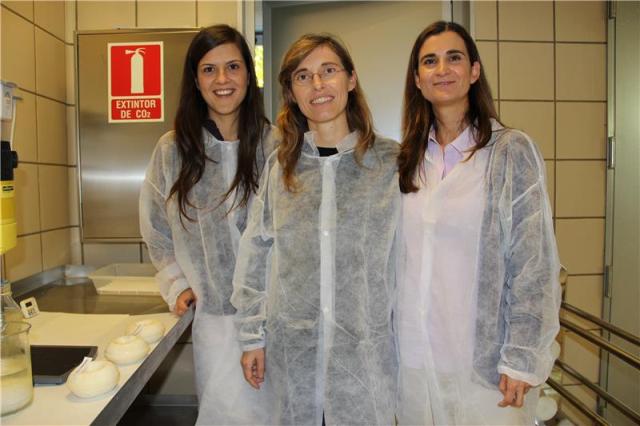Universitat Politècnica de València (UPV) researchers have developed an edible, antimicrobial film that can increase the lifespan of soft cheese. They have used rosemary and oregano oils, and chitosan for producing the film.
 Cheese films
Cheese films
Commercial soft cheese has a lifespan of about 21 days when treated with pimaricin and stored in cold storage. Excessive surface dehydration and micro-organism growth can cause deterioration of cheese. This may lead to formation of a slimy texture and odd odors and flavors. Pimaricin is a common antifungal agent that is used for preventing growth of fungus in cheese. Usually, a non-edible polyvinyl acetate plastic coating is also applied which aids in protecting the cheese.
When cheese matures, fungus can grow on its surface, and if the cheese surface has any fissures or faults, then the fungus can enter into these fissures. The newly developed coating can help decrease this growth of fungus on the surface of maturing cheese.
The innovative product developed by the researchers is a natural, edible coating that controls loss of weight and inhibits fungus growth. The researchers tested different oils and found that oregano oil was better than the other oils in preventing fungal growth. This provided the same results as when treated with pimaricin.
The researchers performed a sensorial analysis of the cheese with the edible coating. Over 100 panelists took part in the analysis. When compared with uncoated cheese, the cheese that was coated with essential oils such as oregano and rosemary, received better scores for odour and taste. This test also allowed the researchers to find out the optimum concentration of the essential oil that provided superior antifungal activity and good sensory acceptance.
This study is to be published in the International Journal of Food Studies.
References